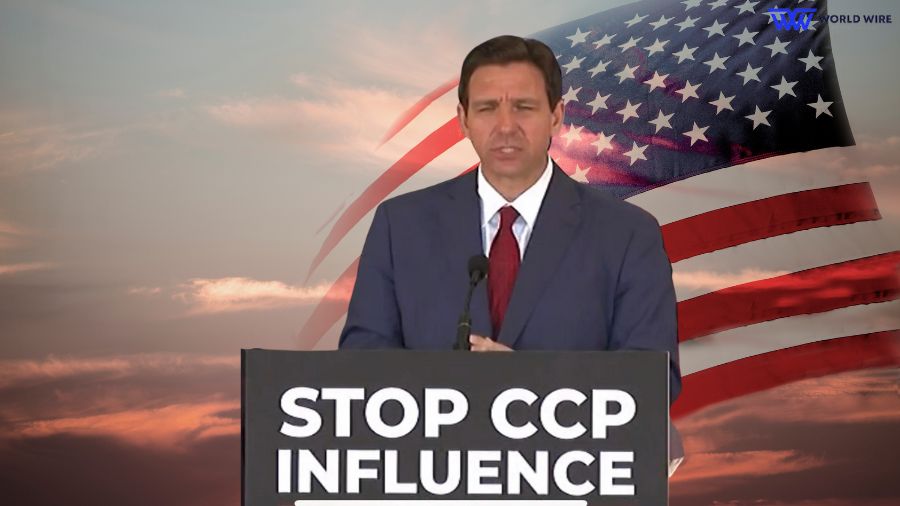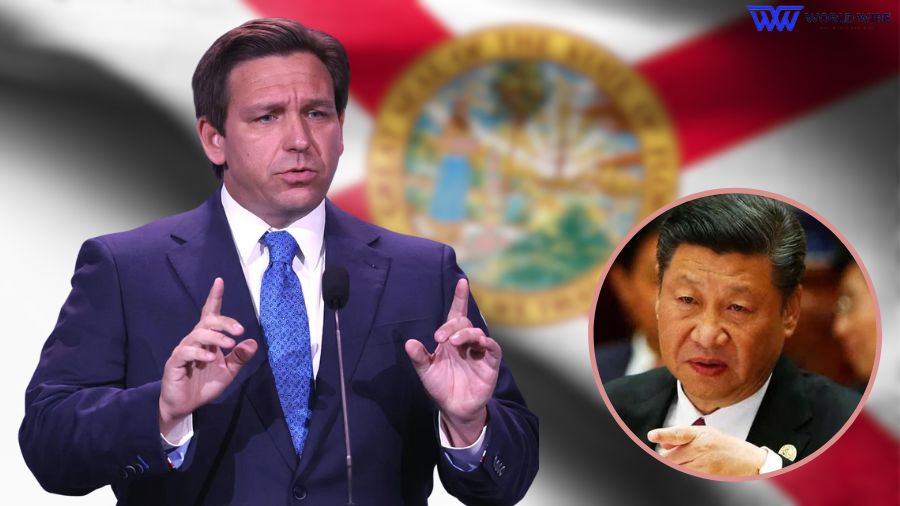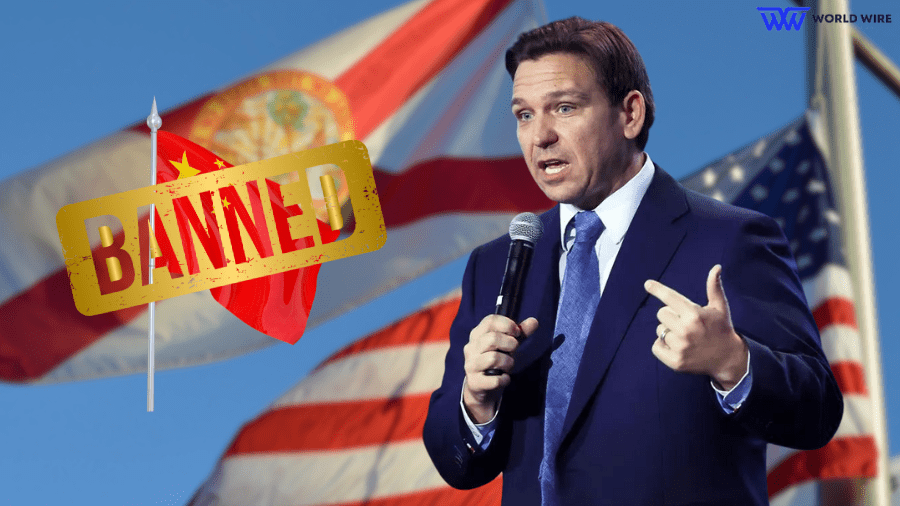During the third Republican presidential debate, Florida Governor Ron DeSantis defended his record on home turf by highlighting a new state law on China.
DeSantis declared, “In Florida, I banned China from buying land in this state… and we kicked the Confucius Institutes out of our universities.”
Confucius Institutes are non-profit organizations supported by the Chinese government that promote the Chinese language and culture. “We recognized the threat and acted swiftly and decisively.”
According to biotech entrepreneur Vivek Ramaswamy, this isn’t the complete tale.
Ramaswamy said during the discussion on November 8, “What you left out, though, Ron, and be honest about it, there was a lobbying-based exemption in that bill that allowed Chinese nationals to buy land within a 20-mile radius of a military base, lobbied for by one of your donors,”
DeSantis retorted, “That’s not true.”
Let’s analyze how DeSantis has restricted Chinese influence and investment in Florida!
The Senate Bill 264

Many Chinese citizens are restricted from purchasing real estate in Florida under Senate Bill 264. The Florida Legislature approved the bill, signed by DeSantis in May and enacted into law in July.
Seven foreign “countries of concern” (China, Cuba, Iran, North Korea, Russia, Syria, and Venezuela) are prohibited by law from having land in Florida or purchasing it.
According to the bill’s final text, they are not allowed to purchase property within ten miles of a military facility or vital infrastructure, including ports, airports, and power substations.
Buyers or sellers of real estate who break the prohibition could be fined $500 and imprisoned for up to 60 days.
The law targets Chinese nationals who claim their primary residence is in China but are not permanent residents of the United States, as well as individuals connected to the Chinese government.
These people are not allowed to purchase any real estate in Florida. Sellers who willfully break this section of the law might go to jail for up to a year and be fined $1,000; Chinese nationals could go to jail for up to five years and be fined $5,000.
People with non-tourist visas or those who have been granted refuge are exempt from the law. These buyers may purchase “one residential property up to two acres” if it is not located on a military installation or within five miles of one.
The claimed DeSantis Donor and their Relationship
The laws were more stringent in their early versions. For Kenneth C. Griffin, the CEO and founder of Citadel, a hedge fund and financial services company, this earlier bill caused issues.
He was concerned that the rule would prevent his numerous foreign employees from purchasing real estate in the area.
So, Griffin put together a network of people to revise the proposed law and reduce restrictions for individuals with work permits. Citadel brought in Capital City Consulting to assist in securing the changes.
The final version signed into law cuts the restricted area for residential property purchases for verified visa holders and asylees to five miles around military bases.
Campaign finance records reveal that in 2021, Griffin gave $5 million to a political action committee supporting DeSantis’ reelection campaign. However, he hasn’t contributed funds to DeSantis’ presidential campaign.
In September, Griffin stayed out of the GOP presidential campaign and did not support Ron DeSantis. On November 14, he also stated on Bloomberg TV that he might endorse Nikki Haley for president.
Challenges Faced by the Law

The Florida law, according to the U.S. Justice Department, is unconstitutional.
As reported by NBC News, some real estate brokers have stated they feel compelled to racially profile clients and decline business, and news reports have shown how prospective buyers are pulling out of home deals.
Conclusion
Ramaswamy’s claims needed certain details. The person he referred to as a DeSantis donor has not endorsed DeSantis’s presidential bid.
Additionally, as mentioned by Ramaswamy, the initial version of the law, which prohibited purchases within a 20-mile radius of military installations and important infrastructure locations, was reduced.
Hence, we can conclude that Ramaswamy’s claim was partially true.
Table of Contents







Add Comment